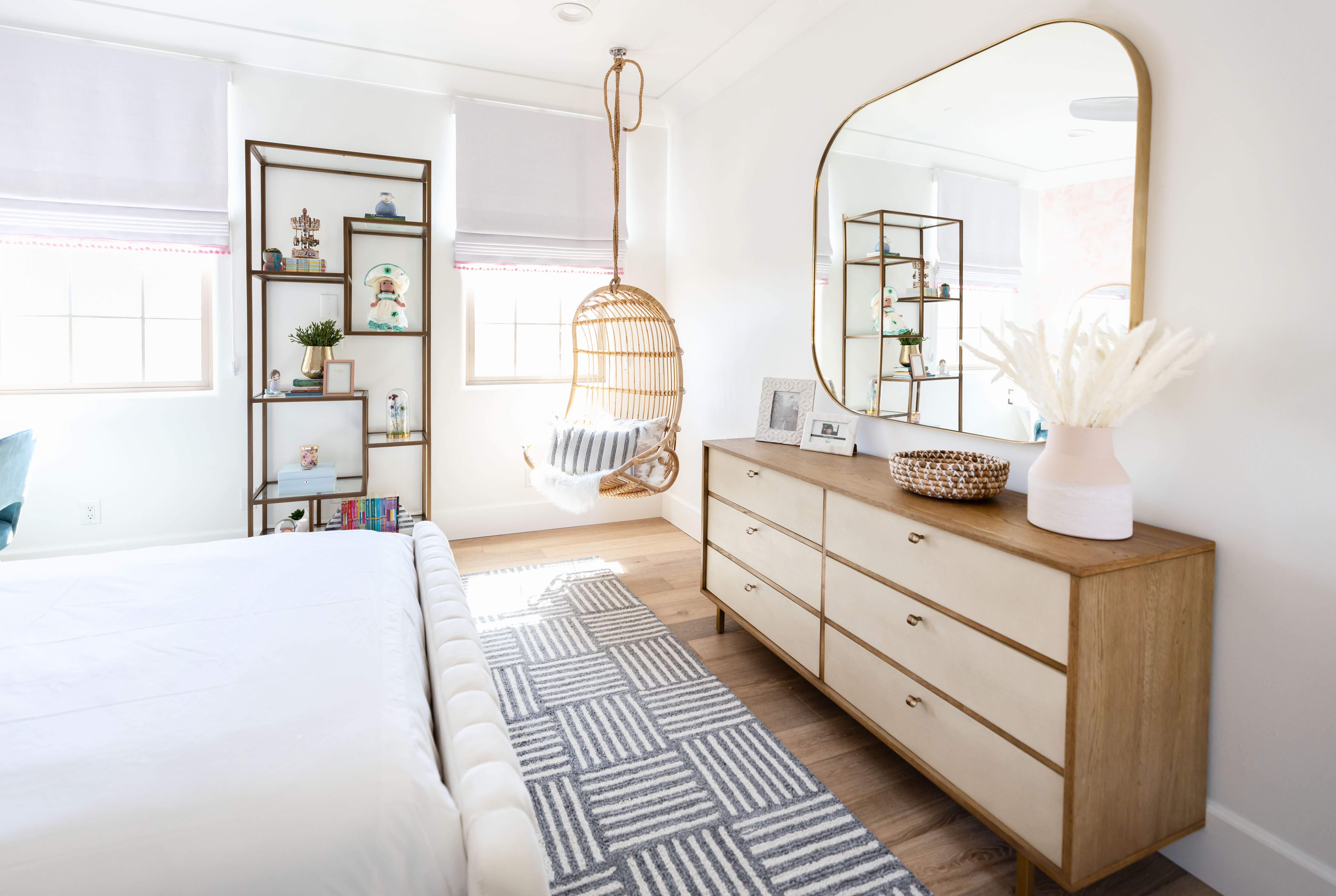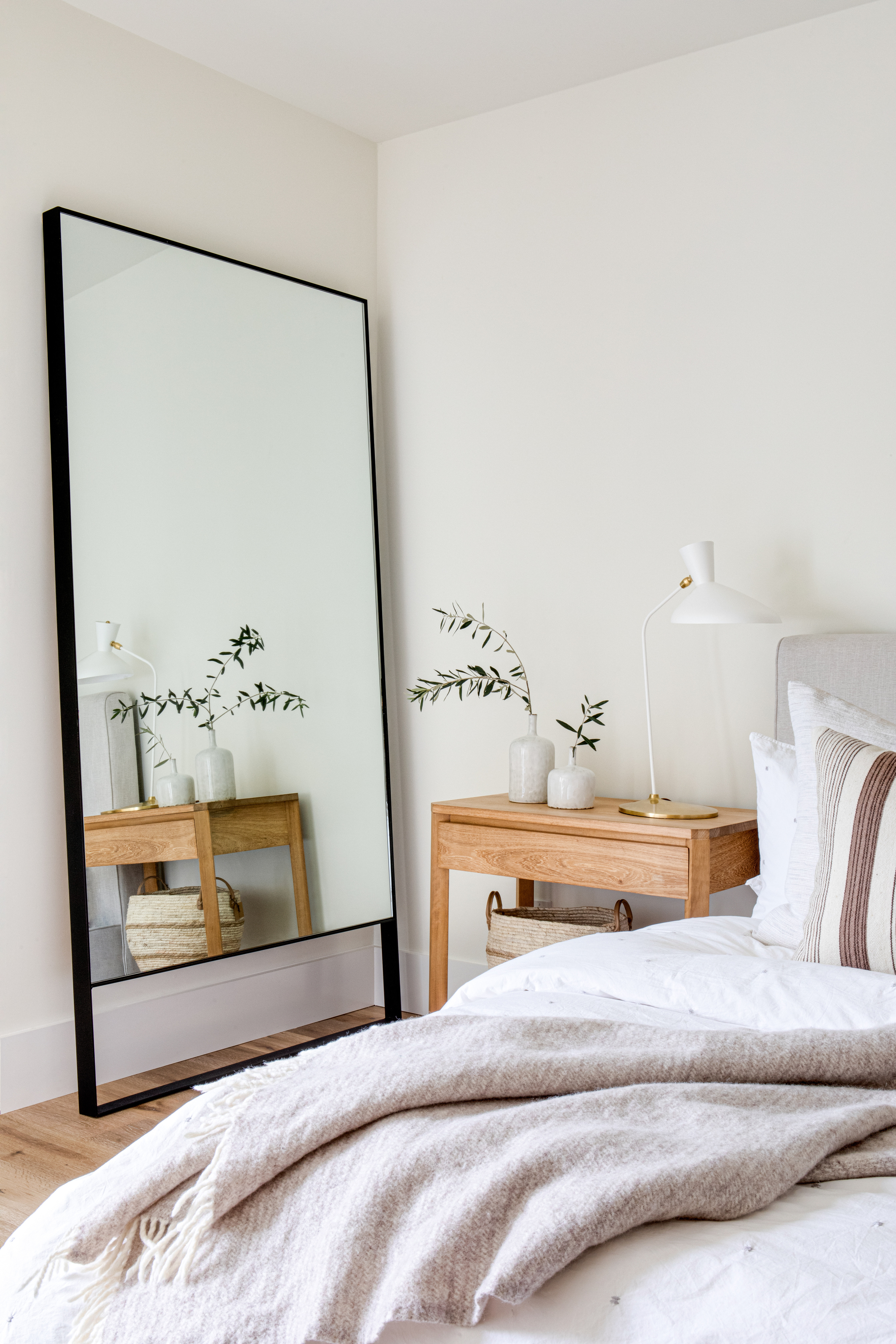
Should you sleep facing a mirror? Let's be clear right off the bat - it's a question that will garner very different responses depending on who you ask. For some, the thought alone is pure sacrilege, others will merely shrug and ask what all the fuss is about. Naturally, we wanted to find out if there's a definitive answer out there.
The idea that you shouldn't sleep facing a mirror is rooted in Feng Shui, the Chinese practice that aims to harmonize people with their environments through furniture arrangement. They're principles that we generally tend to agree with here at Livingetc from a design perspective, but when it comes to how to sleep better, could removing your mirror from opposite your bed really make a difference?
To find out, we asked a sleep coach for some scientific input. Maybe you have a mirror hung on the wall opposite your bed and sleep perfectly fine, or maybe you want to know if moving the dresser parallel to your bed could cure your insomnia. Whatever the case, before you make any drastic changes, you'll want to read this first.
Why do some people say you should never sleep facing a mirror?

So why all the fuss about facing a mirror while you sleep? Feng Shui is all about harmonizing energy in a space through your furniture placement, and mirrors play a huge role in that. According to bedroom Feng Shui mirrors reflect energy, and placing one directly in front of the bed can create a disruptive flow of energy that can interrupt your sleep or cause uncomfortable dreams.
'Feng Shui is a traditional Chinese practice that focuses on harmonizing the energy flow in living spaces to promote well-being and balance in your daily life,' explains Carlie Gasia, a Spencer Institute-endorsed Certified Sleep Science Coach at Sleepopolis. 'In the case of sleeping facing a mirror, the Feng Shui mirror belief is that it can lead to bad dreams and invite negative energy into the sleep space.'
What does the science say?

Beliefs aside, can a mirror actually negatively impact your sleep? Some say it could. If you're not used to having a mirror within your line of sight while you sleep then find yourself in a bedroom that does, the reflection it casts could disturb you at first. As you toss and turn, the movements could wake you up and when you're sleepy, opening your eyes to a face (even your own) can be quite creepy. There's also the possibility of light from the window being reflected to the point it disturbs you.
Generally though, there's no evidence to suggest that sleeping opposite a mirror for a prolonged period will lead to problems with your sleep. As we become more familiar with our surroundings, our sleeping habits adjust to our environment, so there shouldn't be any long-term issues that result from sleeping with a mirror opposite you.
Some people firmly believe in Feng Shui and if that's you, then it's best you avoid a bedroom mirror opposite your bed. Whatever helps you sleep at night, as they say. 'From a scientific standpoint, though, there's limited empirical evidence to support the claim that a mirror opposite your bed with affect your sleep, especially when it comes to dreams,' says Carlie. 'Dreams are complex phenomena influenced by various factors such as stress, emotions and individual experiences, rather than simply the position of a mirror.'
What do interior designers say about bedroom mirror placement?
What about in the case of design? Are there any hard and fast answers when it comes to decorating with mirrors in our sleep sanctuaries? For the most part, it depends on the space.
Small, rectangular bedrooms could really benefit from a large mirror on the wall opposite a headboard to help create the illusion of more space, but it's generally best to avoid placing a mirror somewhere it will amplify clutter (so if you're not the best at making your bed in the morning, a large mirror opposite it might not be best).
In larger spaces, you can use mirrors more freely to create a cozy corner or to frame a space - but don't forget that one of their best benefits is reflecting light. 'A mirror should be placed opposite of or adjacent to a window to help reflect light in a small bedroom,' says Jessica Lagrange, principal designer at Jessica Lagrange Interiors. 'This provides the room with the illusion of more space and a brighter area.'
If you want to really reap the benefits of a mirror to brighten your space, then, you should choose a wall that receives plenty of natural light. The bottom line, however, is it's totally up to you. Your home is your safe space, and nowhere is that more true than in your bedroom. Here, you call the shots, whether you want Feng Shui to influence that or not.






